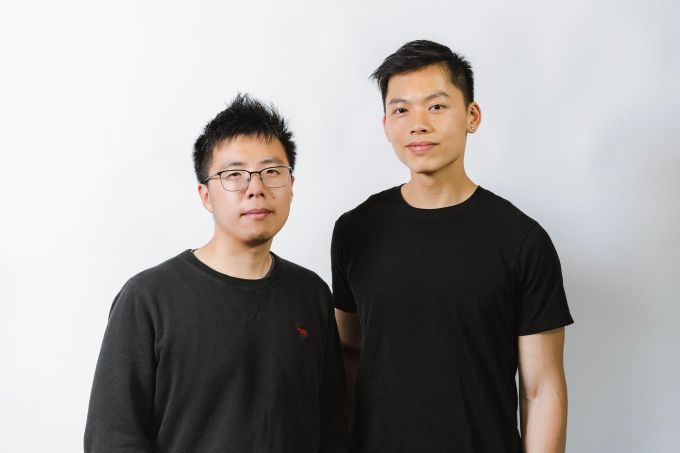As I speak to Tong Pow over Google Meet, he appears as a cartoon medieval-helmet-clad cat that talks and bobs its head, mirroring Pow’s movement behind the webcam. The visor may be hiding a Cheshire cat grin because Pow has raised $6.5 million for his San Francisco-based startup Hologram Labs, just seven months after launching.
NFT avatars have become a common sight on social media platforms, representing their owners’ identities and status. But these blockchain-verified jpegs have limitations; they are static and don’t reflect changes in one’s physical self. Hologram wants to change that by bringing NFT avatars to life.
Pow, who worked at 0x Labs, a decentralized exchange protocol builder, and his co-founder Hongzi Mao, a computer science Ph.D. from MIT, have created a desktop tool that uses machine learning algorithms to turn still avatars into motion-tracked ones. Available as a Chrome extension, Hologram swaps out Pow’s real video feed with the cat avatar — which is part of an NFT collection called Cool Cats.
“Think of it as a machine learning model compressed and deployed to the browser. The technology has only been achievable in the last few years, with the speed and efficiency to run in real time,” explains Pow, adding that the AI model is trained using only publicly available data.
Once the model is deployed to the browser, it then feeds the face tracking points captured by the camera into the avatar, which enacts the movements live.
“To create motion-tracked characters, it requires either high-cost hardware for in-depth tracking or certain platforms that do not have the best user experience, so our angle is really creating the tooling and application for users to become virtual characters with one click,” the founder says.
This motion-captured avatar technology is no stranger to Vtubers, or virtual YouTubers who stream or upload videos using live anime characters.
But I am slightly taken aback when Pow appears as a virtual being — he didn’t warn me. The voice is from Pow, an eloquent, composed young founder, but the cat’s expressions are a bit numb, missing the sophisticated facial expressions of humans.
Should I even be making eye contact with Cool Cat? I’m not quite crawling in my skin but it’s a new experience.
Hologram is working to add more sophistication to its solution by adding a hand tracking feature. A mobile application is also in the making. Beyond animating avatars during video calls, the startup also wants to apply its technology to creating short and long-form videos.
The company’s AI model can supposedly emote any static avatars, but the startup has 100% of its power concentrated in NFTs.
Unsurprisingly, it has attracted a mix of crypto-native investors who are bringing either financial or go-to-market support. Polychain Capital led the seed round, with participation from Nascent, Inflection, The Operating Group, Quantstamp, Neon DAO, Foothill Ventures, and South Park Commons.
If you remember the name of one investor, it’s likely to be Mike Shinoda of Linkin Park, who will be working with Hologram on his NFT music project Ziggurats. Other investors include Kalos, founder of Parallel NFT; Richard Ma, founder of Quantstamp; and Naveen Jain, founder of Yat Labs.
Hologram is already deriving revenues by helping over ten NFT collections transform their characters into dynamic avatars, including Cool Cats, Deadfellaz, and Crypto Covens. In the end, the company wants to reach consumers directly. For instance, it could let users dress their NFT avatars in virtual branded clothes, one step closer to turning real-life assets into digital ones.

CTO Hongzi Mao (left); CEO Tong Pow (right)
CTO Hongzi Mao (left); CEO Tong Pow (right)
The two founders of Hologram are among an influx of Chinese expatriate entrepreneurs working on web3 projects. The hybrid of understanding China and the West, in theory, could give them the advantage of reaching investors in both worlds. Indeed, Pow says he is looking to raise from Chinese investors down the road.
Hologram is targeting the Western NFT market for now, but Pow sees an opportunity in China. Despite bans on crypto trading, China encourages tech firms to create permissioned NFT marketplaces and use them for promoting IP protection.
“Crypto is optional for us, and that’s really our advantage,” says Pow. He explains that from a technical and product perspective, the firm’s technology isn’t reliant on global blockchain networks like Ethereum or Solana.
For many digital natives, Hologram will help them find somewhere they belong.


